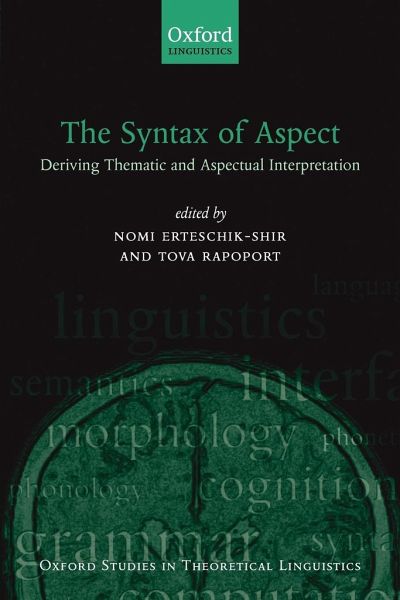
The Syntax of Aspect
Deriving Thematic and Aspectual Interpretation
Herausgeber: Erteschik-Shir, Nomi; Rapoport, Tova
Versandkostenfrei!
Versandfertig in 1-2 Wochen
86,99 €
inkl. MwSt.

PAYBACK Punkte
43 °P sammeln!
This book investigates the way grammar deals with the representation of aspectual (aktionsart) concepts, focussing on issues of the lexicon-syntax interface. The authors' innovative analyses of this interface significantly advance our understanding of the role that syntax plays in determining verbal meaning, aspectual interpretation, and thematic information. Various theories are developed in this collection, including those that take as their starting point the lexical-syntactic framework of Hale and Keyser, prominent among which is the chapter by Hale and Keyser themselves. By examining diff...
This book investigates the way grammar deals with the representation of aspectual (aktionsart) concepts, focussing on issues of the lexicon-syntax interface. The authors' innovative analyses of this interface significantly advance our understanding of the role that syntax plays in determining verbal meaning, aspectual interpretation, and thematic information. Various theories are developed in this collection, including those that take as their starting point the lexical-syntactic framework of Hale and Keyser, prominent among which is the chapter by Hale and Keyser themselves. By examining different phenomena in a cross-linguistic perspective, this book develops insights into the general theoretical question of universal grammar and acquisition as well as into the specific nature of the lexicon-syntax interface. It is a major contribution to modern syntactic theory.


